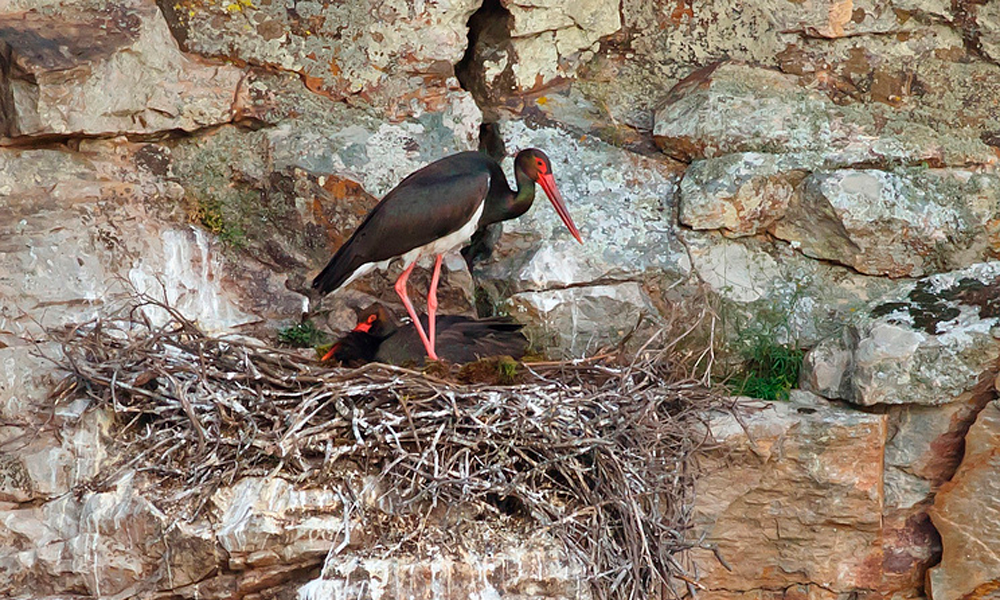If the pair of black storks have baby birds, then this part of forest may be declared a regional nature sanctuary
Experts from the Moscow region’s Ministry of Ecology have spotted a nest of rare black storks, listed in Russia’s Red Data Book, the ministry said in a statement adding that these birds last nested in the Moscow region in the 1920s.
“The nest is under constant surveillance, if the pair of black storks have baby birds, then this part of forest may be declared a regional nature sanctuary,” the statement quoted Moscow Region Ecology Minister Alexander Kogan as saying. Black storks currently have zero status in the regional Red Book as they were labelled a species which had apparently ceased to nest in the Moscow Region.
The two black storks have made a nest in a forest in the western part of the region. Experts have not yet announced its exact location in order to prevent people who wish to see the rare birds from disturbing them.
Black storks are considered an endangered species as they are also listed in the Red Books of Belarus, Bulgaria, Tajikistan, Uzbekistan, Ukraine and Kazakhstan. These birds have been significantly affected by deforestation, marshes drainage and criminal poaching.
Black storks are secretive birds. Unlike white storks, who make nests near human settlements, the black ones choose deep woods surrounded by lakes and marshes for nesting. These birds nest once a year at the top of old trees, up to 20 meters above the ground. They usually lay four to seven eggs, both parents hatching the eggs.
